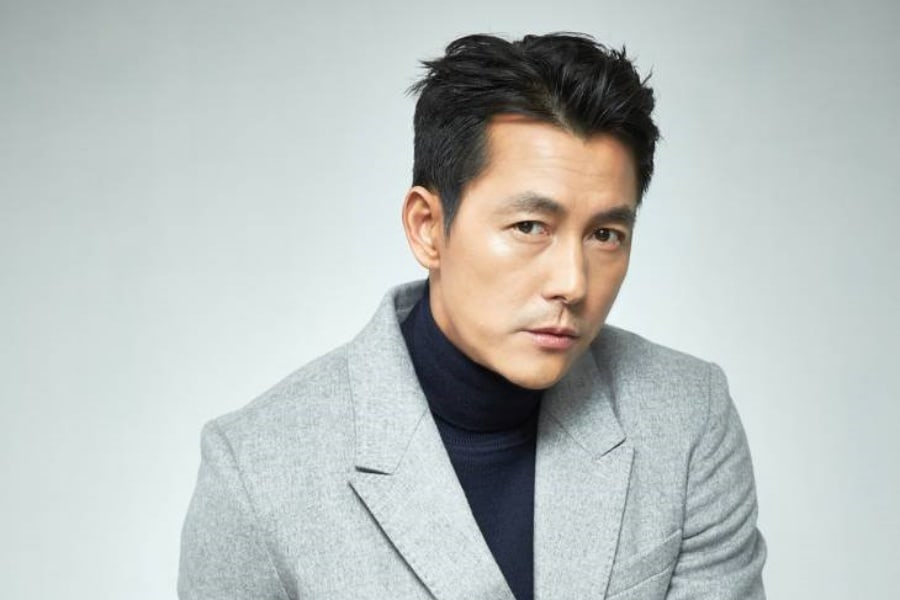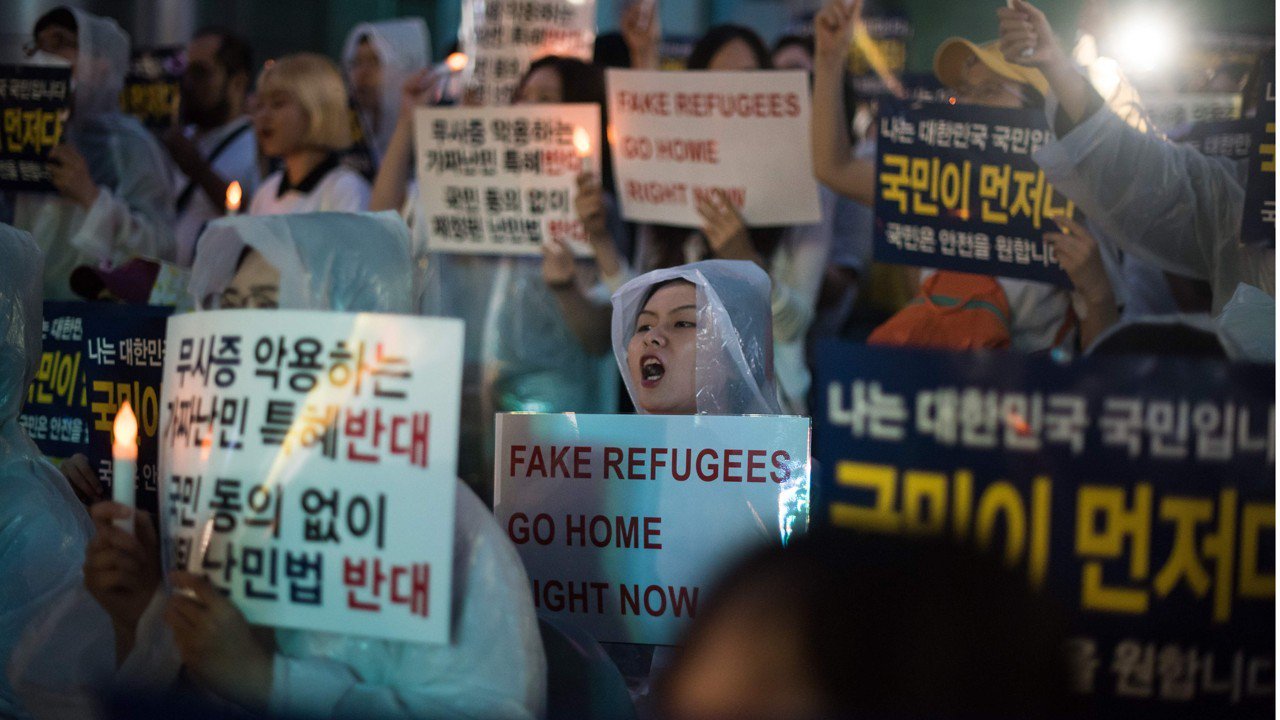Actor Jung Woo Sung has come under intense fire in Korea recently for his position on Yemeni refugees seeking shelter from their war-torn country. Back on June 20, the actor and honorary ambassador for the UN Refugee Agency urged people to support refugees in a post on Instagram.
https://www.instagram.com/p/BkOt_WugR3b/
Jung Woo Sung also shared the official statement of UNHCR (UN Refugee Agency) Representation in Korea.
“UNHCR has been following closely the situation of recent arrivals of Yemeni asylum-seekers on Jeju Island. Arrival of such a large group of people in a short period of time is an unprecedented situation for Jeju Island and for Korea, and we commend the Korean authorities and the people of Jeju for the efforts they have made to assist the Yemenis, who are fleeing from one of the worst humanitarian crises in the world. Korea is one of the few countries in the Asian region who has signed the 1951 Refugee Convention and the only country which has a separate and dedicated law on refugees, under which any person seeking asylum in Korea will have their case carefully considered. UNHCR remains at the disposal of the Korean government to provide technical advice and support on the processing of this and other refugee groups in Korea. It is UNHCR’s firm position that no Yemeni should be forcibly returned to his or her country at this time, due to the extreme nature of the humanitarian emergency in that country, which has resulted in violence, breakdown of civil order, widespread displacement and the looming threat of famine.”
Sound relatively uncontroversial? I thought so. However, it’s been anything but.
The Korean public is generally seething over the thought of accepting these refugees.
The Yemeni refugees who entered South Korea earlier this year should have been a nonstory. Only 561 escapees from the ongoing Saudi-led war in Yemen made it to Korea’s Jeju Province, where 552 applied for asylum, a pittance compared to, say, Germany, which handled approximately 890,000 asylum-seekers in 2015. The Yemeni refugees were confined to the island of Jeju, hardly in a position to interact with the South Korean population at large, much less compete for a job or pose a threat in any way. Yet the South Korean public reacted to these handful of refugees with hysteria. The petition to liberal President Moon Jae-in demanding the government not accept the refugees garnered more than 700,000 signatures—the highest number since the Blue House opened its online petition system in August 2017.
President Moon Jae In was a refugee himself, and though his government did affirm their obligation to refugees in their response to the public outrage, they also included concessions to the hysteria. Sadly, this was likely a necessary political move, because even the progressive base of this administration’s supporters are generally against the refugees.
In a recent survey, conducted by Hankook Research, 56 percent of those surveyed opposed admitting the Yemeni refugees, while only 24 percent supported letting them in. But women objected more strongly than men (61 percent to 51 percent), respondents in their 20s (70 percent) and 30s (66 percent) objected the most among all age groups, and middle-income households (62 percent) expressed the strongest objections against admitting the refugees.
To be sure, when broken down by political leanings, South Korea’s self-identified progressives opposed the refugees least (49 percent) compared to self-identified centrists and conservatives (60 percent and 61 percent, respectively). But for an administration that’s looking for broad-based support to enact wide-ranging domestic economic policies while pursuing peace with North Korea, losing ground with its base is a cause for great concern.
The refugee issue pushed Moon’s approval rating to the lowest point since he took office, at 62 percent—an excellent number objectively, but a big drop from 79 percent that Moon was enjoying as recently as the second week of June, when the refugee issue began to emerge.
As usually happens with hysteria, bullshit is helping the spread of nonsense.
In late July and early August, one of the trending hashtags on Korean-language Twitter was #제주도여성실종사건 (“Missing Women in Jeju-do”), pointing to a string of six women supposedly found dead in Jeju in the past two months and blaming the refugees. (The claim turned out to be largely imagined; there were only five cases, two had been made up and three were accidental deaths.) One tweet that received more than 5,000 retweets reads: “As a Jeju resident, I’m [expletive] nervous. There was a note saying they will kill women at the library next to my school. All I see around me are refugees and the Chinese. It’s only been two months, but there are six women found dead.” In addition to the “Missing Women” hashtag, the tweet also has the hashtag #제주도여성안전권보장하라 (“Secure safety rights for Jeju women”).
Just a lot of false narratives being spread, even in the comment section of other international sites.
Jesus Christ, the only reason that would explain all those comments under the recent Jung Woo Sung NB article is that Stormfront was experiencing a prolonged site outage.
— Chris (@NoHiddenPath79) October 21, 2018
Korea eventually accepted 339 refugees on a one-year humanitarian stay permit, not even providing permanent refugee status, but at least making it so they weren’t sent back to Yemen.
Yay?
There’s definitely nuance to this issue regarding stuff like the amount of refugees a country should take in and the screening process, plus any moral/social debates about rules/assimilation. I get it. That said, aside from the appeal to humanity, one would think that Korea in particular would understand the plight of the refugees. After all, it was not long ago that massive amount of Koreans sought a place to make a better life for themselves. Additionally, North Korean refugees are generally accepted in South Korea with open arms, which goes to show what the actual issue is here. This was not lost on Jung Woo Sung, who was quick to point out the double standards of the public.
“We, South Koreans, have consistently expressed worries about the repatriation of North Koreans who escaped from their home country,” he said. He was talking about the Chinese government’s notorious practice of repatriating North Korean escapees if they are caught in China. “(It’s ironic that) some of us call for the repatriation of the Yemenis,” the actor said. “If they are sent back home, they will face a detrimental situation which could cost them their lives in the worst-case scenario.”
All of this is to say that Jung Woo Sung is actually taking a big risk by showing support for the refugees, but he knows it and is fine with the consequences.
He was asked whether or not he is afraid about revealing his political opinions as a top star and actor. He replied by saying, “I’m not that concerned. I gained many things in life, so I have nothing to lose. What’s wrong with suffering a small loss because of a good deed. You could just throw that away for all I care.”
Honestly, if people would actually read what he’s going around saying, he’s not even calling for Koreans to accept the refugees. Primarily, he’s just telling the public to stop believing in bullshit news stories and to have empathy for their situation as humans, encouraging Koreans to take their stance on the refugees after considering these things. Yet, that seemingly reasonable and uncontroversial stance hasn’t stopped the backlash.
Fans love to heap praise on their faves for supporting whatever progressive social causes, even if they don’t actually involve putting their careers at risk. So it’s noteworthy to me that Jung Woo Sung is truly putting his nuts on the chopping block here considering the passionate public sentiment in Korea regarding the Yemeni refugees. It would definitely be easier to stay quiet, and people are encouraging him in not-so-kind words to do exactly that, but I hope he continues to speak up for humanitarian issues and continues to not let outside pressures force him into walking back the sentiments he’s expressed.
 Asian Junkie Asian pop. Without discretion.
Asian Junkie Asian pop. Without discretion.

